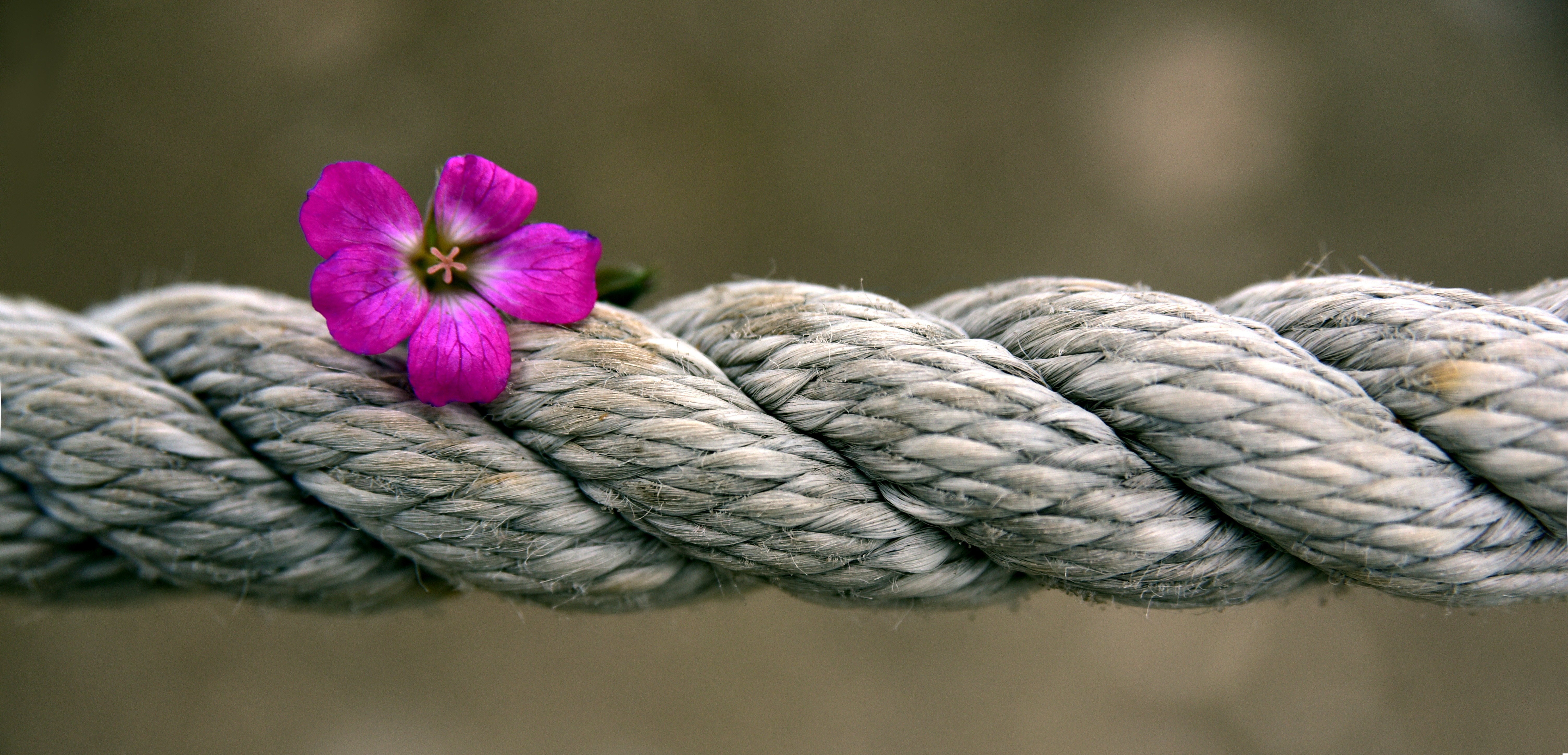[Image Source: Image by Ulrike Leone from Pixabay]
Aesop’s Fables (ancient Greece) and the Tao Te Ching (ancient China) both tell the story of the tall, strong oak tree that looked down upon the thin, humble reed. But a great storm toppled the mighty oak, while the lowly reed survived. “Bend, not break” is the obvious lesson. Which is relevant in the current storm we are facing.
The world has changed in a blink. ‘Stress’ (a familiar and chronic problem) has suddenly become ‘distress’ (an acute crisis and a shock to the system) and requires a somewhat different response.
Business leaders need to maintain stability and innovate rapidly, at the same time, i.e. “fix the plane while flying it”. How can you deliver business continuity if you are churned up and anxious, inside? More importantly, how can you use this crisis as a springboard to shape the future, instead of merely coping with it?
In any crisis, resilience is the first and foundational quality that leaders need. Resilience arises from the internal state of ‘presence’. It comprises two capacities: Endurance, i.e. the ability to handle the immediate shock, and recovery, i.e. the ability to bounce-back quickly and effectively, to create a new normal. Most people tend to focus on the latter, while ignoring the former. This is dangerous.
Also, bear in mind that the precautionary actions we are taking right now are all physical: wash your hands properly, minimise touching your face, disinfect commonly handled surfaces, keep safe distance from others, etc. But resilience goes beyond the physical and needs a holistic approach. We must consider emotional, mental, relational and even spiritual resilience.
The key question: Can you actively cultivate resilience, especially in these uncharted times?
Here are seven well-known and well-documented insights and practices to consider. Each takes 20-30 minutes and you can try doing one each day. (It will really help if you assign a notebook or start a journal to capture your reflections.)
Day 1: Access your ‘Presence’
– from the teachings of many healing systems
After a stellar corporate career, Ravi M, 56, started-up a social impact firm. There are many issues now buzzing in his head: Should he extend the lease on his small office? For how long can he afford to pay full salaries? Will his outsourced partners re-negotiate terms? How does he supplement his cash-flow? Ravi isn’t sleeping well, and finds it hard to motivate himself, let alone anyone else.
The eye is the safest place to be in a storm. Similarly, your inner state of presence can ground and centre you amidst the tumult. The five signals of presence are a) even breath; b) clear, calm mind; c) open heart; d) sensitive sonar; and e) energetic induction.
What you can do: Click Presence Practice to download a 13-min audio file and practice it daily. Learning to change your internal state is the foundation of resilience. Only if you find presence, can you act from it.
I hope you will enjoy the Presence Practice and find it useful. To embed in your muscle-memory, please do it once, daily, for 28 days.
Day 2: Beware the ‘second arrow’
- from Buddhist teachings
Pervez D, 36, took over his family’s manufacturing unit three years ago. Last year, he took out a big loan for new equipment. His new factory was ready for commissioning. Now with the lockdown, everything has ground to a halt, but the meter is ticking. His supply chain originates in China and his core client base is in Western Europe—both have collapsed. Given the state of the stock market, his investments are of little use. Pervez is staring down the barrel and feels insecure.
The ‘first arrow’ is the pain caused by the event itself (the sudden shock of the lockdown).
The ‘second arrow’ is the suffering caused by how our mind processes the event (fear and anxiety about the loss of normalcy). It is said that pain is universal i.e. everyone feels it, while suffering is optional i.e. you can choose your response.
What you can do: Complete your Presence Practice. On a sheet of paper, create two columns. On the left (first arrow), capture the facts—what is actually happening/changing in your life? On the right (second arrow), note down your feelings—what are you experiencing in your body, and what stories or scenarios is your mind spinning? Just separating the facts from the feelings will give you a greater sense of taking charge of yourself and the situation. Perhaps some new and unexpected options will emerge.
Day 3: Trauma – transition – transformation
– from the work of William E. Bridges and others
Deepa T, 45, a star performer and VP in a multinational bank, was to lead a global project, as the ticket to her next promotion and overseas posting. But in March, all new projects were put on hold. She’s now “on the bench”—her new job is gone and someone else has taken over her old job. Her London head office is trying to find her a new position and has asked her for time until end-June. Rationally, Deepa understands the business constraints. But emotionally, she is seething at being left out on a limb. Is her career even secure anymore?
We all know that “change is a constant”, but very few know the universal pattern and the three key stages of change:
- The familiar ends, eg. your normal, comfortable routine;
- Period of regeneration, when nothing much seems to happen on the surface eg. quarantine;
- New beginning, eg. a totally new way to work and relate to other people
What you can do: Complete your Presence Practice. On a sheet of paper, answer the following questions.
- What is ending … and what can you let go of?
- What new possibilities are quietly germinating under the surface … and how will you allow this natural process to unfold?
- What green shoots are sprouting … and how will you cultivate the resources to nourish them?
- The waves of change are getting higher and choppier … how will you ride them … and enjoy the ride?
Day 4: Hardiness and Heartiness
– from the work of Henry Dreher, Lydia Temoshok and others
Sandhya R, 51, is a highly qualified and experienced HR professional turned recruitment consultant. She’s been working from home for the past two years. But now her husband and three kids are also home all day, plus her elderly parents live with them. Since their two maids are also on compulsory time-out, the housework has multiplied manifold. On the work front, all her new assignments have dried up. Sandhya is feeling burned-out and overwhelmed.
There is excellent research to show that each one of us has powerful inner resources to cope with crisis. They are called the ‘4 Cs’:
- Control - reclaiming power to influence life circumstances;
- Commitment - finding meaning and purpose in adversity;
- Challenge - reframing old assumptions to overcome current challenges;
- Cooperation - leveraging collective resources to find innovative solutions.
What you can do: Complete your Presence Practice. On a sheet of paper, answer the following questions: In the current situation,
- What do you have most/moderate/least control over?
- What is your highest possibility/aspiration?
- What old assumptions/beliefs are blocking you?
- Whose help can you seek, and what support can you offer others?
- What are you most grateful for, right now?
Balancing Hardiness (yang/ masculine) and Heartiness (yin/ feminine) is important right now!
Day 5: D-A-B-D-A
– from the work of Dr. Elizabeth Kubler-Ross and others.
Javed S, 29, quit his job and joined his previous boss’s small events firm, specialising in CEO round-tables on topics in the financial services sector. He has cultivated a strong network of influential industry leaders and a good reputation. Of course, all events are now on hold indefinitely. But yesterday, Javed’s boss confided that he plans to take a long sabbatical and shut down the company, unless, Javed wants to run it, but at his own risk. Javed feels like the rug has been pulled from under his feet. He doesn’t know anything about running a company. Worse, he feels let-down by his mentor. Amid all the turmoil, the one thing he doesn’t want to do is to tell his family.
When human beings experience a sudden loss, we cycle through these five natural stages, whose acronym is D-A-B-D-A.
- Denial – refuse to accept reality due to the shock;
- Anger – Arises from the “why me” question and can take many forms;
- Bargaining – try to change the situation by negotiating and offering something;
- Depression – feel hopeless and helpless;
- Acceptance – reconcile with both the traumatic event and its implications
What you can do: Complete your Presence Practice. On a sheet of paper, answer the following questions.
- What aspect of reality are you denying?
- What is the source of your anger – are you feeling unfairly betrayed, ambushed or violated?
- What healthy or unhealthy bargains are you making – with others and with yourself?
- What are the typical signs/ symptoms that you may be sliding into grief and depression? Some examples: an inability to focus or concentrate, unexplained fatigue or depleted energy, feeling helpless or disengaged, restless or irritable, etc.
- What are your coping strategies? Some examples: physical activity, breath-work/pranayama, remember/re-live your happiest memories, eat a mood-boosting meal, reach out to other people, take up a hobby, complete a small task as soon as you wake up, etc.
- What are you willing to accept and what are you resisting … why?
Day 6: Stress – Immunity – Illness
– based on the science of Psychoneuroimmunology (PNI), the work of multiple authors and systems of Yoga and Chinese medicine.
Elizabeth F, 42, is a physiotherapist. She used to visit hospital thrice a week and run her private clinic from home, the other three days. Now her hospital department head has asked her to come in daily. She did that for the past seven days and is totally exhausted by the 16-hour days, as the medical system struggles to cope with the overload. Elizabeth’s family is not happy that she goes to work every day despite the lockdown. She knows her own health (and her family’s) is at risk. But healthcare is an essential service and she wants to play her part in this emergency situation. She has not been eating well and sleeps for barely four hours. The last straw came yesterday, when her 10-year-old daughter asked, “Mummy, why don’t you stay in the hospital until this thing is over?”
Our immune system – Nature’s amazing gift to us – is our first line of defence, against internal and external attack. Most people are unaware that
- Stress compromises immunity, leading to illness;
- Stressors can be Physical (healthy or unhealthy habits), Emotional (positive of negative feelings), Mental (enabling or disabling thoughts), Relational (supportive or toxic relationships) and Spiritual (meaning and purpose);
- Psychoneuroimmunology (PNI) is the supporting science behind the stress-immunity-illness axis.
What you can do: Complete your Presence Practice. Take the free 30-minute online Holistic Health Questionnaire here. You can also request a free 30-minute online consultation to debrief your personal report. To take specific actions for each stressor—most are now available online— click here.
Day 7: The value of rest
“Doing nothing is better than being busy doing nothing.” (Lao Tzu)
Do nothing. Just relax, repair and renew yourself. Feel free to indulge and enjoy the small pleasures of life.

